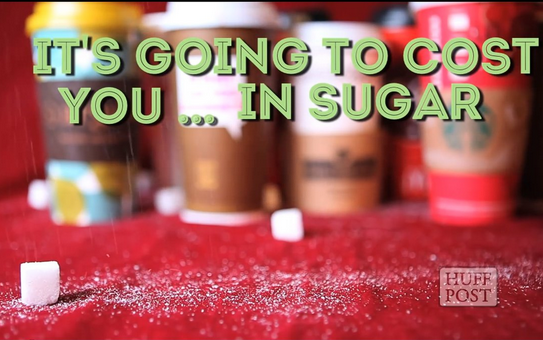Is Your Juice Any Better than a Soft Drink?


In a recent study from Healthy Living, some of the most popular “health” juices were analyzed for sugar content. Many had more sugar than five chocolate chip cookies—around 39 grams. While juice made from actual fruit can’t really be compared to cookies made from refined flour and oils, it does bring home an important point: not all foods marketed as healthy are good for you.
We saw the greatest example of this last year with a multi-million dollar lawsuit that was levied against PepsiCo for their claims that Naked-brand drinks were “all natural”. Though these drinks had every appearance of being nothing but good stuff—loaded with fruits and vegetables—they had several “unnatural” additions.
As NaturalSociety’s Christina Sarich reported last summer:
The plaintiffs in the suit claimed that PepsiCo gave the “the false impression that the beverages vitamin content is due to the nutritious fruits and juices, rather than the added synthetic compounds such as calcium pantothenate (synthetically produced from formaldehyde)” and “Fibersol-2 (a proprietary synthetic digestion-resistant fiber produced by Archer Daniels Midland and developed by a Japanese chemical company), fructooligosaccharides (a synthetic fiber and sweetener), and inulin (an artificial and invisible fiber added to foods to … increase fiber content without the typical fiber mouth-feel).”
Food makers have one thing in mind, and it’s not the health of consumers. It’s their profit margin—how much can they make with minimal costs. It’s this that drives both the ingredients in their products and how their products are marketed.
Read: 4 Health Foods with more Sugar than a Twinkie
If a company is selling a juice and the consumer base is health-conscious adults, it will capitalize on what they want and market appropriately—perhaps having a farmer plucking fruits for the juice in the commercials and having words like “all natural” and “organic ingredients” on the label. But, if it wants to sell that same juice to children, the marketing approach will be very different. Without changing the formula, the marketing arms of these companies can change your entire perception about a food.
The number of beverage choices available when you go to the grocery store or even the convenience store is truly astounding. More and more we are seeing drinks that are marketed as “healthy” alternatives to soda. They may contain some natural fruit juice, herbs, or vitamins to bolster these claims. But, in many cases, they aren’t as healthy as their makers would like you to believe.
The bottom line when it comes to food is: do your own research. Don’t rely on a food maker to protect you or to tell you the complete truth. When you have any doubt in your mind about a specific food or ingredient, play it safe and avoid it altogether.
